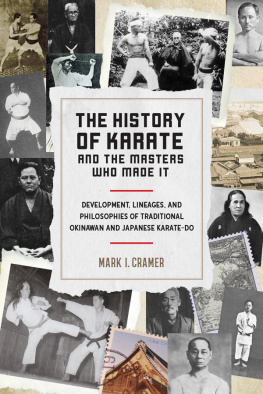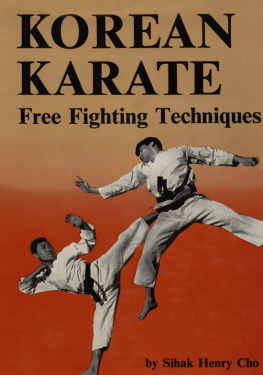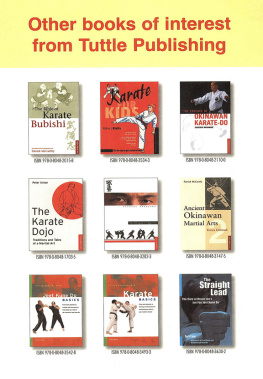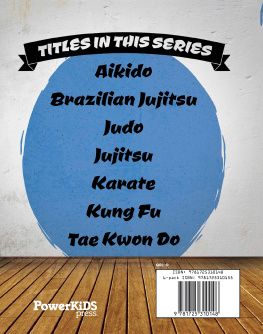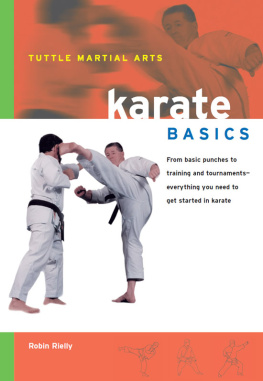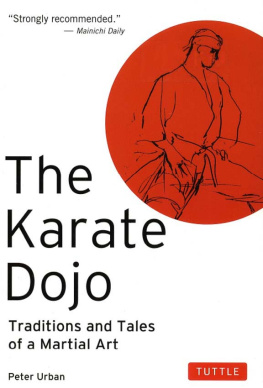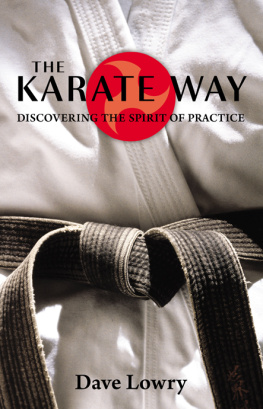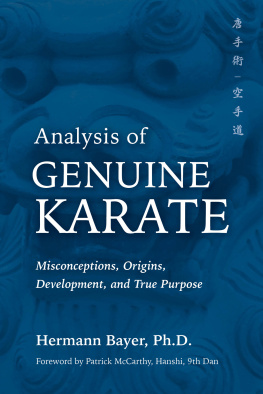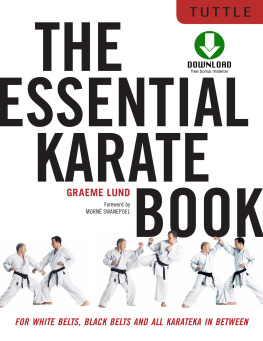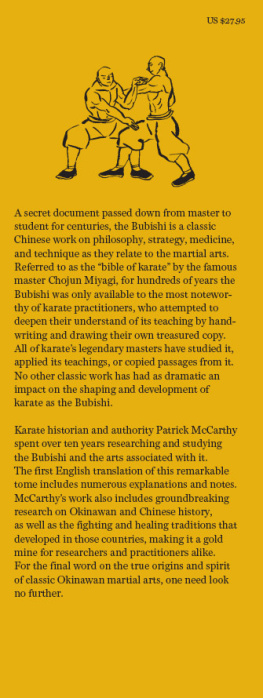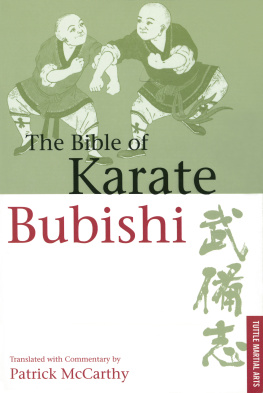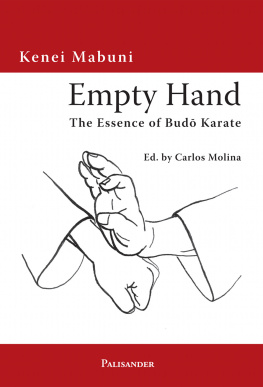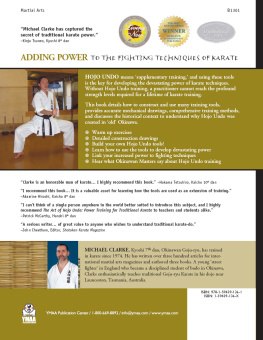
Copyright 2018 by Mark I. Cramer. All rights reserved. No portion of this book, except for brief review, may be reproduced, stored in a retrieval system, or transmitted in any form or by any meanselectronic, mechanical, photocopying, recording, or otherwisewithout written permission of the publisher. For information contact Blue Snake Books c/o North Atlantic Books.
Published by
Blue Snake Books,
an imprint of North Atlantic Books
Berkeley, California
Cover photos: All portraits are in the public domain, via Wikimedia Commons
Cover design by Jasmine Hromjak
Book design by Happenstance Type-O-Rama
Printed in the United States of America
The History of Karate and the Masters Who Made It: Development, Lineages, and Philosophies of Traditional Okinawan and Japanese Karate-do is sponsored and published by the Society for the Study of Native Arts and Sciences (dba North Atlantic Books), an educational nonprofit based in Berkeley, California, that collaborates with partners to develop cross-cultural perspectives, nurture holistic views of art, science, the humanities, and healing, and seed personal and global transformation by publishing work on the relationship of body, spirit, and nature.
North Atlantic Books publications are available through most bookstores. For further information, call 800-733-3000 or visit our websites at www.northatlanticbooks.com and www.bluesnakebooks.com.
PLEASE NOTE: The creators and publishers of this book disclaim any liabilities for loss in connection with following any of the practices, exercises, and advice contained herein. To reduce the chance of injury or any other harm, the reader should consult a professional before undertaking this or any other martial arts, movement, meditative arts, health, or exercise program. The instructions and advice printed in this book are not in any way intended as a substitute for medical, mental, or emotional counseling with a licensed physician or healthcare provider.
Library of Congress Cataloging-in-Publication Data
Names: Cramer, Mark I., author.
Title: The history of karate and the masters who made it : development,
lineages, and philosophies of traditional Okinawan and Japanese karate-do
/ Mark I. Cramer.
Description: Berkeley, California : Blue Snake Books, 2018. | Includes
bibliographical references and index.
Identifiers: LCCN 2018003894 (print) | LCCN 2018013270 (ebook) | ISBN
9781623172404 (e-book) | ISBN 9781623172398 (paperback)
Subjects: LCSH: KarateJapanOkinawa-kenHistory. |
KarateJapanHistory. | Martial artistsOkinawa-kenBiography. |
Martial artistsJapanBiography. | BISAC: SPORTS & RECREATION / Martial
Arts & Self-Defense. | HISTORY / Asia / Japan. | SPORTS & RECREATION /
History.
Classification: LCC GV1114.3 (ebook) | LCC GV1114.3 .C726 2018 (print) | DDC
796.815/309dc23
LC record available at https://lccn.loc.gov/2018003894
North Atlantic Books is committed to the protection of our environment. We partner with FSC-certified printers using soy-based inks and print on recycled paper whenever possible.
Acknowledgments
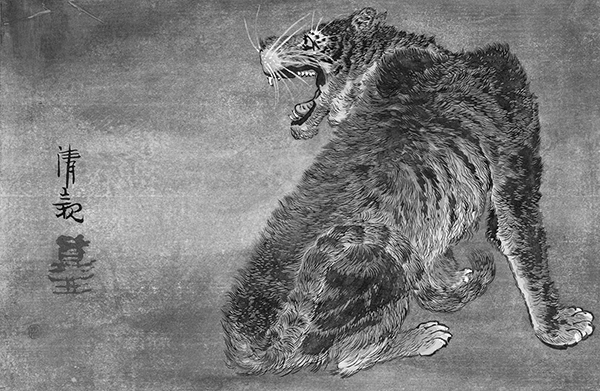
I would like to dedicate this book to my family and particularly my wife, Colette, for supporting me in all of my karate endeavors. I have often been unavailable to my family because of my karate workout and teaching schedules. There have been other times when karate has taken me away from home for extended periods of time when I have been participating in seminars and other karate functions. As a result of my commitment to karate and to my students, I have missed many family interactions and functions. Throughout all of this, my family has seemed to understand my passion for the martial arts and has gone out of their way to support me in my endeavors.
I would also like to thank all of my teachers of karate-do and particularly my instructors in Goju Ryu karate-do Seiwa Kai for all the direction and support that they have given me. Collectively, they have offered the guidance and the inspiration that has helped me to develop into the person and karate-ka that I am today. To all of my instructors, I owe a great deal of gratitude.
I would also be remiss if I did not thank all of my students both past and present. They have inspired me to become better in my karate and to improve the pedagogy that I use in the dojo. It is because of my students that I have endeavored to acquire accurate information about the history of karate-do and to present that information in an articulate and understandable manner in this book.
It is also important to acknowledge the role that my professors at Kent State University played in my endeavor to write this book. They instilled in me a passion for research and accuracy in writing. It is equally important to mention my teaching colleagues who inspired me to strive for excellence in education not only in the classroom but also outside the confines of school walls.
Without the inspiration, guidance, and support of all of these people and institutions, this book would have never become a reality.
Introduction
Fact and Fiction
When I first began to study karate in 1971, there was precious little historically accurate information written in English about the martial arts in general and about karate in particular. At that time, I was a student at Kent State University pursuing a degree in both history and communications. This lack of well-researched historical information regarding karate, the martial art for which I had developed a passion, proved to be a major disappointment.
Originally, in place of an accurate history of karate, we were told a plethora of martial arts myths on a variety of subjects. Similar to the so-called urban myths of today, these stories were told and retold in the dojos throughout the karate community until they gained a life of their own. This phenomenon was prevalent not only in this country but also in Okinawa and other parts of Japan. Karate Master Gichin Funakoshi explains: In the past it was common to embellish stories about the martial arts until they were just short of myths. As we know, several popular television shows and websites are dedicated to researching and debunking popular urban myths, and the same type of research can also shed light on many of these martial arts myths and confirm them as true or expose them as false.
Martial Arts Myths Busted
For instance, we were told a story of how the karate black belt developed. It was explained that in antiquity a karate-ka (karate student) started out wearing a white belt and that over time it gradually darkened as the karate-ka gained knowledge and experience. Since the belt was never washed, it turned darker and darker until it eventually became black, signifying that the karate-ka was in possession of true knowledge. This and most of the other myths proved to be entertaining, but they also proved to be false. The truth of the matter is that originally, no black belts were worn in karate. In fact, no karate gi (uniform) was worn either; practitioners wore short pants and were bare-chested. Karate black belts and uniforms were first adopted in the 1920s and had nothing to do with the story that we were told. The true history of karates adoption of the black belt proved to be much less philosophical and entertaining but much more informative of the social and cultural climate of Okinawa and Japan at that time.
Next page
